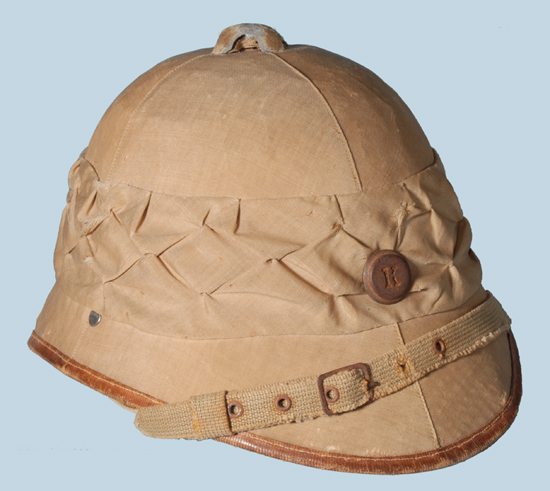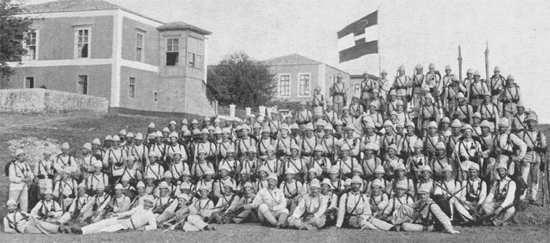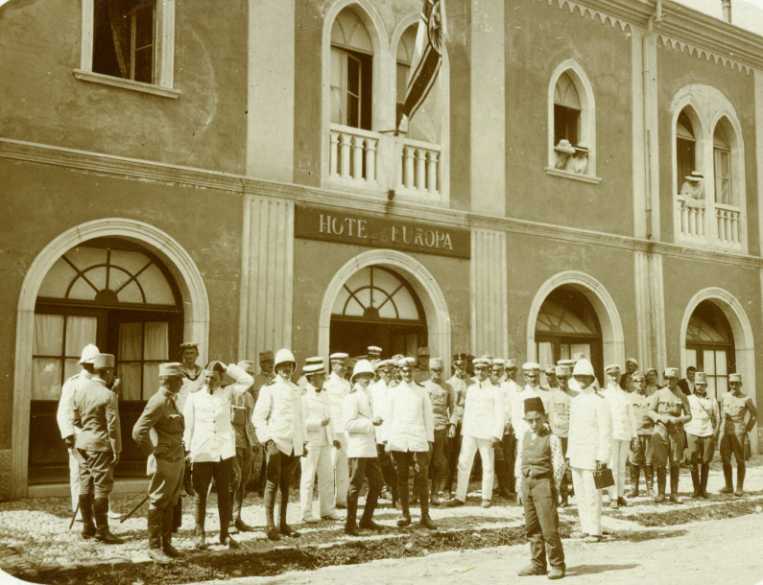As we noted previously in regards to the Czech sun helmets, it might seem apposite to consider that a landlocked nation in Central Europe would have need for a sun helmet. But while the Czechs were a unique case, one must remember that the Austria of today is much different from the Austro-Hungarian Empire of the late 19th and early 20th century.
While the nation is generally thought of as only having European ambitions, much of which in its later years focused on the Balkans, it wasn’t entirely without a few colorful colonial adventures. It is true that Austria did not partake in the “scramble for Africa” but it did take part in the Berlin Congo Conference of 1884-85, as well as the Brussels Anti-Slavery Conference of 1889-90 and even in the international Morocco Conference of 1906.
Additionally, there was the now largely forgotten Austrian East India Company that had trading stations in Mozambique’s Delagoa Bay and Nicobar Islands – but this was active from 1777-81, so about a hundred years before the tropical helmets really came into widespread use. The Austro-Hungarian Empire also looked to buy Spanish Western Sahara in the 1890s, but this plan never amounted to much.
However, Austrian forces did take part in Boxer Rebellion in China in 1900. These naval troops didn’t wear sun helmets however, but the other British, German and French forces did, and likely inspired the Austrians, as the latter began to use sun helmets in a series of minor “adventures” in the decade to follow.
It is also worth noting that between 1901 and 1914, Austria-Hungary did technically have a Far Eastern colony. It occupied a piece of land that covered about two and a third square miles in Tianjin.
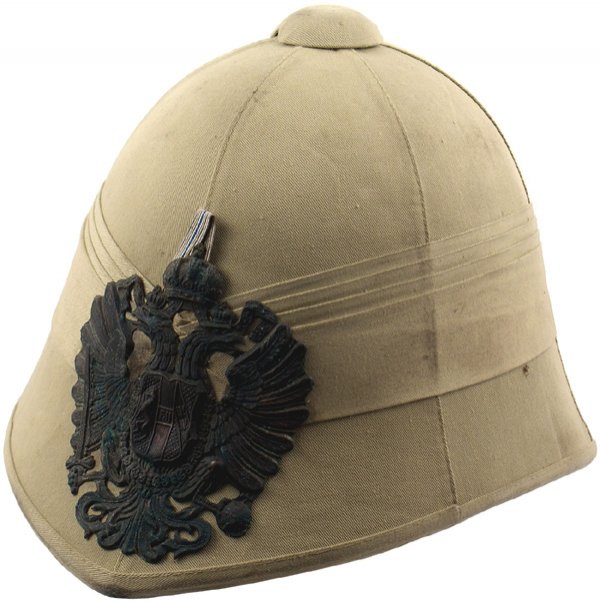
A “supposed” example from the Austro-Hungarian Navy – the author believes it to be a rather poor fake.
The first sun helmets used by Austria actually pre-date the Boxer Rebellion and were used in the 1897 peace keeping mission to Crete, when local Christians rose up against their Ottoman overlords. These helmets were produced by the firm of P. & C. Habig, and were likely made of felt. The surviving examples in the Austrian Army Museum suggest these helmets were brown in color but period photos also suggest a white version was used.
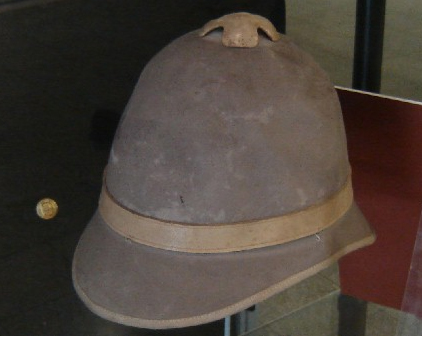
An example of the helmet pattern used in Crete in 1897 in the Austrian Army Museum, Vienna (photo credit: C Dale www.GermanColonialUniforms.co.uk)
Sun helmets were also apparently used during the 1913 Balkan Crisis, including peacekeepers that were sent to Albania.
During World War I a variety of helmets were produced by P. & C. Habig, and these were issued to troops fighting alongside their Ottoman allies in Palestine and at Gallipoli.
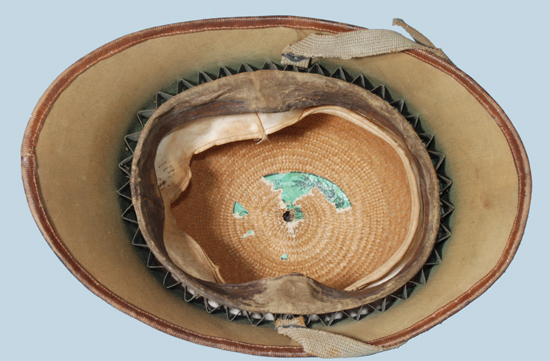
The body of these Austrian-made sun helmets is of woven straw with a thin khaki-colored cotton covering. This was likely due to a shortage of cork.
Peter Suciu

